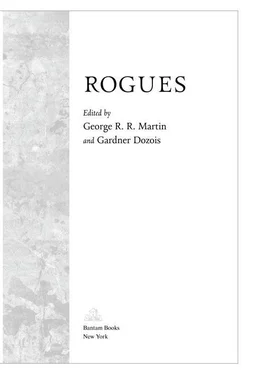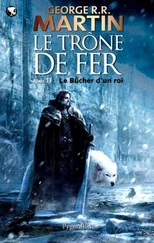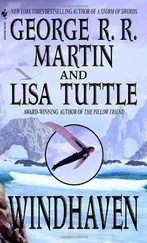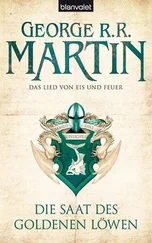For a down-on-his-luck thief on the run through a danger-haunted forest with only a few coins in his purse, finding a valuable magical object may be a stroke of luck. Or maybe not.
Matthew Hughes was born in Liverpool, England, but has spent most of his adult life in Canada. He worked as a journalist, as staff speechwriter for the Canadian Ministers of Justice and Environment, and as a freelance corporate and political speechwriter in British Columbia before settling down to write fiction full-time. Clearly strongly influenced by Jack Vance, as an author Hughes has made his reputation detailing the adventures of rogues like Old Earth’s master criminal, Luff Imbry, who lives in the era just before that of
The Dying Earth,
in a series of novels and novellas that include
Fools Errant,
Fool Me Twice,
Black Brillion,
Majestrum,
Hespira,
The Spiral Labyrinth,
Template,
Quartet and Triptych,
The Yellow Cabochon,
The Other,
and
The Commons,
and short-story collections
The Gist Hunter and Other Stories,
9 Tales of Henghis Hapthorn,
and
The Meaning of Luff and Other Stories.
His most recent books are the novels in his urban fantasy trilogy, To Hell and Back:
The Damned Busters,
Costume Not Included,
and
Hell To Pay.
He also writes crime fiction as Matt Hughes and media tie-in novels as Hugh Matthews.
THE INN OF THE SEVEN BLESSINGS
Matthew Hughes
The thief Raffalon was sleeping away the noonday heat behind some bracken a short distance from the forest road when the noise of the struggle awakened him. He rolled over onto his stomach, quietly drawing his knife in case of need. Then he lay still and tried to see through the interlayered branches.
Figures scuffled, voices spoke indistinctly, the syllables both sibilant and guttural. A muffled cry, as of a man with a hand over his mouth, was followed by the sharp crack of hardwood meeting a human cranium.
Raffalon had no intention of offering assistance. The voices he had heard were those of the Vandaayo, whose border was not far away. Vandaayo warriors left their land only for ritual purposes, and then always in groups of six, and never without their hooks and nets and cudgels. Their seasonal festivals centered on the consumption of manflesh, and if Raffalon had attempted to intervene in the harvesting now taking place on the other side of the thicket, the only result would have been to add a bonus to the part-men’s larder.
He waited until the poor captive had been trussed, slung, and carried away, then waited a little longer—the Vandaayo might assume that where they found one fool in a forest they might find another. Only when he heard birds and small beasts resuming their interrupted business did he rise and creep toward the road.
He found it empty, except for the possessions of the unfortunate traveler who was now being marched east into Vandaayoland. He examined the scattered goods: a scuffed leather satchel, a water bottle, a staff whose wood was palm-polished smooth at its upper end. With small expectation, he squatted and sorted through the satchel’s contents, finding only a shirt of indifferent quality, a fire-starting kit inferior to his own, and a carved oblong of wood about the size of his hand.
He studied the carvings. They formed a frieze of human and animal figures, connecting to each other in manners that some would have called obscene, but which to Raffalon’s sophisticated eye were merely anatomically unlikely. In a lozenge at the center of the display was a deeply incised ideogram that the thief found it difficult to keep in focus.
That difficulty caused Raffalon’s mouth to widen in pleasure. The object had magical properties. It would surely command some value in the bazaar at Port Thayes, less than a day’s march in the direction he was headed. Thaumaturges came thick on the ground there. He turned the item over, to see what if anything was on the other side. As he did so, something faintly shifted inside.
A box, he thought. Better. He rotated the thing and examined it from several angles, but found no seams or hinges or apparent means of opening it. Even better, a puzzle box.
The day was improving. For Raffalon, it had begun with a flight into the forest in the cold dawn, with only two copper coins in his wallet and a half loaf of stale bread in his tucker bag. There had been a disagreement with a farmer as to the ultimate fate of a chicken the thief had found in a flimsy barnyard coop. Now it was midafternoon, and, though the chicken had remained in its pen, the bread had been eaten as he marched. He still had the coins and had acquired a box that was valuable in its own right and might contain who knew what?
The satchel could also be useful. He slung its strap over his shoulder after throwing away the shirt, which was too large and smelled of unwashed body. He uncorked the bottle and sniffed its contents, hoping for wine or arrack but being disappointed to find only water. Still, he tucked it into the leather bag, and, after a moment, decided not to take the staff as well, even though there were steep slopes ahead, the land rising before the road descended into the river valley of Thayes—he was better with a knife if he had time to draw it.
As he walked on, he studied the box and noticed a worn spot on one corner. He pushed it. Nothing happened. He rubbed it, again without result. He tried sliding it, this way and that. He heard a tiny click from within. A sliver of wood moved aside, revealing a pin-sized hole beneath.
Raffalon had no pin, but he had the knife and a whole forest made of wood. He whittled a twig down to the right size, inserted it into the hole, and pushed. A plug of wood on the opposite side of the box popped out. When the thief applied pressure here and there, suddenly the carved side of the box slid sideways a small distance and revealed itself to be the top of the container that moved on a hidden hinge.
Inside was a lining of plush purple cloth, with a hollowed space in the middle in which rested a carved wooden figurine the size of his thumb. It had the likeness of a small, rotund personage, bald and probably male, with head inclined indulgently and mouth formed into an indulgent grin. Raffalon took the carving out, the better to examine it.
When his fingertips touched the smooth wood, a faint tingling passed along the digits, into his palm and through his arm, growing stronger as it progressed. Alarmed, he instinctively sought to fling the thing away from him but found that his fingers and arm refused to obey him. Meanwhile, the tingling sensation, now grown into a full-body tremor, reached its crescendo. For several moments, the thief stood, vibrating, in the middle of the forest road. His eyes rolled up into his head and his breathing stopped, his knees locked, and it seemed as if a strong wind passed through his skull from left to right.
Abruptly, the sensations ended and he had control of his body again—except when he tried once more to throw the carving from him. His arm obeyed him, but his hand did not. The treacherous extremity closed tightly around the smooth wood and all of Raffalon’s considerable will would not cause it to open.
Meanwhile, he heard a voice: We had better move. When the Vandaayo are ahunting, it does not do to lollygag.
Without much hope, the thief spun around. But there was no one there. The words had formed in his mind, without the involvement of his ears. His hand now opened and he addressed the object nestled comfortably in his palm. “What are you?”
It is a long story, said the voice that spoke in a place where he was accustomed to hear only his own. And I lack the energy to tell it.
Читать дальше












